GenomeEd Review Committee
The GenomeEd Review Committee is composed of healthcare professionals and educators, including representatives who are genetic counselors, nurse practitioners, pharmacists, physicians, physician assistants, and public health professionals. The Committee reviews all newly submitted resources to determine if the resource is current, of excellent quality, accurate, created by experts in the field, and focused on genomics education.
Member Biographies
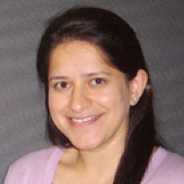
Myla Ashfaq is an assistant professor and genetic counselor in the Department of Pediatrics, Division of Medical Genetics at McGovern Medical School at the University of Texas Health Science Center at Houston. She is the discipline director for the medical genetics content for first year medical students, providing several lectures, conducting small group activities and reviewing the genetic content to ensure it is in accordance with the guidelines set forth by the Association of Professors of Human and Medical Genetics (APHMG). Ms. Ashfaq is a member of the APHMG course directors executive committee and the APHMG membership committee. In 2020, Ms. Ashfaq played a pivotal role in creating and establishing the Pakistani Society of Medical Genetics and Genomics with the mission to enable the provision of affordable medical genetics services to the people of Pakistan and to create awareness of genetic disorders through education, community outreach and research. Ms. Ashfaq is involved in the planning and delivery of monthly genetics educational webinars for healthcare providers in the United States and Pakistan with an interest in medical genetics.
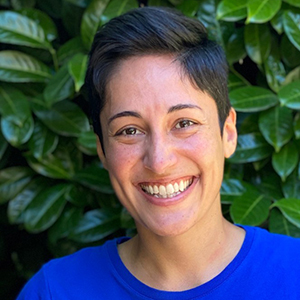
Sarah Clowes Candadai is a certified and licensed genetic counselor who earned her graduate degree from the University of Wisconsin-Madison. Ms. Clowes Candadai joined Seattle Children’s Hospital in 2016 as a lab stewardship genetic counselor, helping to educate providers on genetic testing options for their patients and understanding the result. In addition, she helped lead the implementation of rapid exome and genome testing for critically ill patients at Seattle Children’s Hospital and has consulted with other healthcare organizations to improve access to testing. Ms. Clowes Candadai now works as the program manager for Patient-centered Laboratory Utilization Guidance Services (PLUGS®), within the Department of Laboratories at Seattle Children’s Hospital. PLUGS is a laboratory test stewardship collaborative with a mission to improve laboratory test access, ordering, retrieval, interpretation and reimbursement. PLUGS currently has over 80 members and is guiding insurance alignment initiatives, including medical policy, administrative workflow improvements and education tools and programming for patients and providers that collectively improve stewardship of medically appropriate genetic testing.
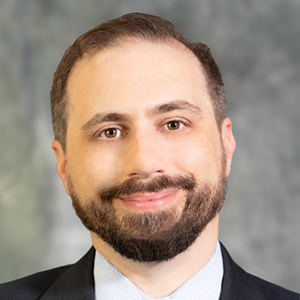
Dr. Philip Empey is the associate director of the Institute for Precision Medicine at the University of Pittsburgh and the University of Pittsburgh Medical Center and an associate professor in the School of Pharmacy. There, he directs the Pharmacogenomics Center of Excellence and leads the PreCISE-Rx and Test2Learn teams to implement pharmacogenomics clinical, research and educational initiatives. As a genomics educator, he current serves as co-chair of the Inter-Society Coordinating Committee for Practitioner Education in Genomics pharmacogenetics subgroup. He has helped write the genomics competency standards for pharmacists and develop nationally deployed certificate programs. Dr. Empey has a research interest in novel methods to accelerate genomics competency of all healthcare professionals.

Dr. Anne Ersig is an assistant professor in the School of Nursing at the University of Wisconsin-Madison. Her program of research seeks to improve the health and well-being of individuals with chronic health conditions, who may experience substantial condition-related and general stress. She is particularly interested in the biological, physiological and epigenetic ramifications of high cumulative stress levels in individuals with chronic health conditions. Dr. Ersig also has a strong commitment to educating nurses in genetics and genomics. She has participated in several nursing-specific courses designed to improve genomic education for nurses. Dr. Ersig is the co-chair of the Inter-Society Coordinating Committee for Practitioner Education in Genomics nursing genomics project group, which is developing resources for nurses with an interest in learning more about genomics and how it influences their nursing practice. For the past five years, she has contributed to the education of undergraduate and graduate nursing students at UW-Madison by providing tailored and detailed guest lectures on genomics in nursing practice and research. This work has led her to her current project, which is developing a course in precision health and genomics for students at UW-Madison.
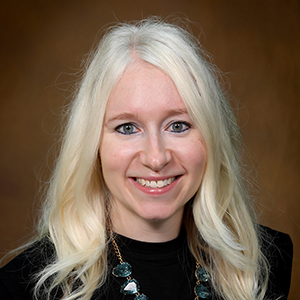
Dr. Elizabeth Kudron completed medical school at the University of New Mexico before completing her residency in pediatrics at Nationwide Children’s Hospital at the Ohio State University. Following residency, Dr. Kudron practiced pediatrics in the private practice setting while completing her master’s in public health in health systems management at the University of Colorado. During her public health studies, Dr. Kudron recognized the potential of personalized and precision medicine to transform healthcare. Dr. Kudron joined the faculty at the University of Colorado in 2019 and currently spends one day a week seeing pediatric patients at the Child Health Clinic in Children’s Hospital Colorado. When she isn’t seeing patients, she focuses on translating personalized medicine research into health systems changes that improve clinical care. Dr. Kudron serves as the associate director for program education at the Colorado Center for Personalized Medicine. She co-directs the Personalized and Genomic Medicine Graduate Certificate Program at the University of Colorado as part of an ongoing effort to educate current and future healthcare providers and researchers about the potential of precision medicine.
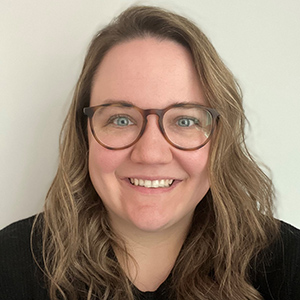
Megan Lyon has worked at the American College of Medical Genetics and Genomics since 2013. In her current role as the co-project director of the National Coordinating Center for the Regional Genetics Networks (NCC), she supports collaboration and activities between the NCC and seven Regional Genetics Networks , which helps foster access to quality genetic services for underserved populations. She received a master’s of public health in health policy and a bachelor’s of arts in psychology and political science from George Washington University in Washington, DC. Ms. Lyon has worked on a host of genetics and genomics educational activities ranging from the creation of Public Health Genetics Week to working on the American College of Medical Genetics ACT Sheets and Algorithms.

Dr. Claudia Mikail attained her M.D. at Icahn School of Medicine at Mount Sinai and MPH at Columbia University while she was a resident in preventive medicine and public health at University Hospital, Stony Brook. She completed an NIH fellowship in medical genetics at the University of California, Los Angeles (UCLA) Intercampus Medical Genetics Program. She had comprehensive clinical training in neonatal, pediatric and adult genetics at UCLA, Cedars-Sinai and Harbor-UCLA Medical Centers and conducted cutting-edge research in the genetic epidemiology of diabetes. Dr. Mikail is the author of the bestselling genetics textbook "Public Health Genomics: The Essentials," which is utilized in graduate and professional school courses around the world. Recognized internationally as an expert in genetics and disease prevention, she has served on the American College of Preventive Medicine Genomics advisory board and the American Public Health Association genomics forum. Dr. Mikail is often invited as a guest lecturer for local, regional and national medical societies, as well as social service organizations.

Vinaya Murthy joined the Indiana University School of Medicine (IUSM) in 2021 as an assistant professor of clinical medical and molecular genetics. She recently joined University of California San Francisco as a cancer genetic counselor and continues to work for IUSM as adjunct faculty and as the co-director for the IUSM Genetics in Medicine Scholarly Concentration Program. Her clinical areas of interest include oncology, rare diseases and neonatology. She is also interested in addressing health equity and provider education gaps in genomic medicine. She is passionate about research and supporting diversity, equity and inclusion initiatives at Indiana University. Ms. Murthy is a member of the Inter-Society Coordinating Committee for Practitioner Education in Genomics rare disease and nursing genomics project groups. She is the co-chair for the National Organization of Rare Disorders Center of Excellence training, continuing medical education, and workforce development workgroup.
Ms. Murthy is completing her Ph.D. in translational health sciences through George Washington University. Her dissertation focuses on genomic medicine training in graduate medicate education. She has more than 20 years of experience working in the fields of genetics, oncology, public health and education, particularly in underserved, diverse and international communities.

Dr. Aniwaa Owusu Obeng is a faculty member of the Charles Bronfman Institute for Personalized Medicine and an associate professor in the Department of Medicine at the Icahn School of Medicine at Mount Sinai. In addition to spearheading clinical pharmacogenomics implementation efforts in Mount Sinai’s outpatient clinics, Dr. Owusu Obeng also leads development of provider and patient educational materials on pharmacogenomics in the form of videos, brochures, reference cards, practice-based patient cases, institutional quick-guide protocols and many others. Moreover, Dr. Owusu Obeng directs clinical pharmacogenomics rotations for pharmacy residents and the Advanced Pharmacy Practice Experience rotation for student pharmacists. Her research interests mainly lie in developing best practice processes to effectively bridge the gap between discovery of genetic determinants of therapeutic response and their adoption into routine clinical practice. Dr. Owusu Obeng is an active member of Clinical Pharmacogenetics Implementation Consortium and the pharmacogenomics working group in the NIH/NHGRI-funded IGNITE Network. She is the current co-chair of the early career committee in the Pharmacogenetics Research Network where she also serves as a member of the developing countries committee.
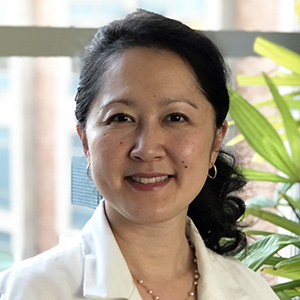
Nguyen H. Park is a current American College of Medical Genetics-NHGRI Genomic Medicine Program Management Fellow, the founder and president of the Society of Physician Assistants in Genetics & Genomics, and a member of the editorial board of G2C2 from 2011-2019. She is also a member of the following ISCC-PEG project groups: DTC-GT, Nursing, and Pharmacogenomics. She is the co-author of the revised Genomic Competencies for the PA profession, and the chair of the ACMG workforce physician assistants working group. She has lectured nationally on genetics/genomics topics and helped create the first physician assistant educational series in genetics funded by Health Resources and Services Administrations in May 2022.
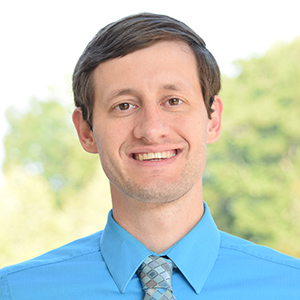
Dr. Wesley G. Patterson is a genetics physician assistant at the Greenwood Genetic Center in Greenwood, South Carolina, and a clinical assistant professor of internal medicine at the University of South Carolina School of Medicine Columbia. He is involved in the evaluation and treatment of genetic disorders in individuals of all ages. Dr. Patterson serves as the American Academy Physician Associate’s external representative in the field of genetics and genomics and the Greenwood Genetic Center’s representative to the Inter-Society Coordinating Committee for Practitioner Education in Genomics. He holds a Ph.D. in healthcare genetics from Clemson University where his dissertation work focused on genetics and genomics education for physician assistants. He also has a special interest in genetics and genomics education for all healthcare providers. He lectures at the state and national level and leads workshops along the east coast to educate the healthcare community about genetics and genomics.

Dr. Matthew Taylor is professor of medicine and director of the Adult Medical Genetics Program and clinic at the University of Colorado. He is boarded in internal medicine and clinical genetics and genomics and has been directing the Adult Medical Genetics Program since 2001. His work includes serving the needs of adults and families with genetic conditions in the Denver and Rocky Mountain region. The clinic services include genetic diagnosis, testing and counseling and is the only such adult genetics clinic staffed by an academic medical geneticist in a seven-state area. Dr. Taylor’s research interests are focused on inherited cardiomyopathies, which are major causes of heart failure and heart transplantation. Dr. Taylor is also involved in clinical trials and is co-director of the University of Colorado National Organization for Rare Disorders Rare Disease Center of Excellence.
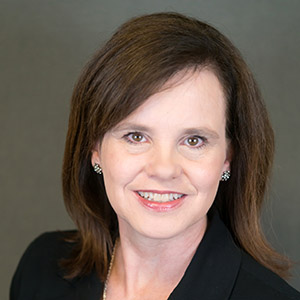
Dr. Karen J. Whitt is an associate professor at George Washington University School of Nursing. She has developed curriculum and taught courses in genomics and healthcare informatics as well as designed an innovative genomics course for nurse practitioners in collaboration with an interdisciplinary team of faculty from the George Washington School of Medicine. Over 3,000 nurse practitioner students have taken this course. Dr. Whitt completed her dissertation work with the Baltimore Longitudinal Study of Aging on studies to evaluate the influence of genetic markers and lifestyle variables on bone health. Dr. Whitt’s research interests focus on promoting the application of genomics, informatics and healthcare technology in clinical practice to improve safety and quality of patient care. Over the years, she has been involved in research projects in nursing education, genomics, informatics, patient safety and health promotion. She is currently serving as the chair of the International Society of Nurses in Genetics (ISONG) education committee and has developed a comprehensive checklist and review process for evaluating the quality of resources included in the ISONG genomics education resources repository.
Last updated: April 6, 2023
